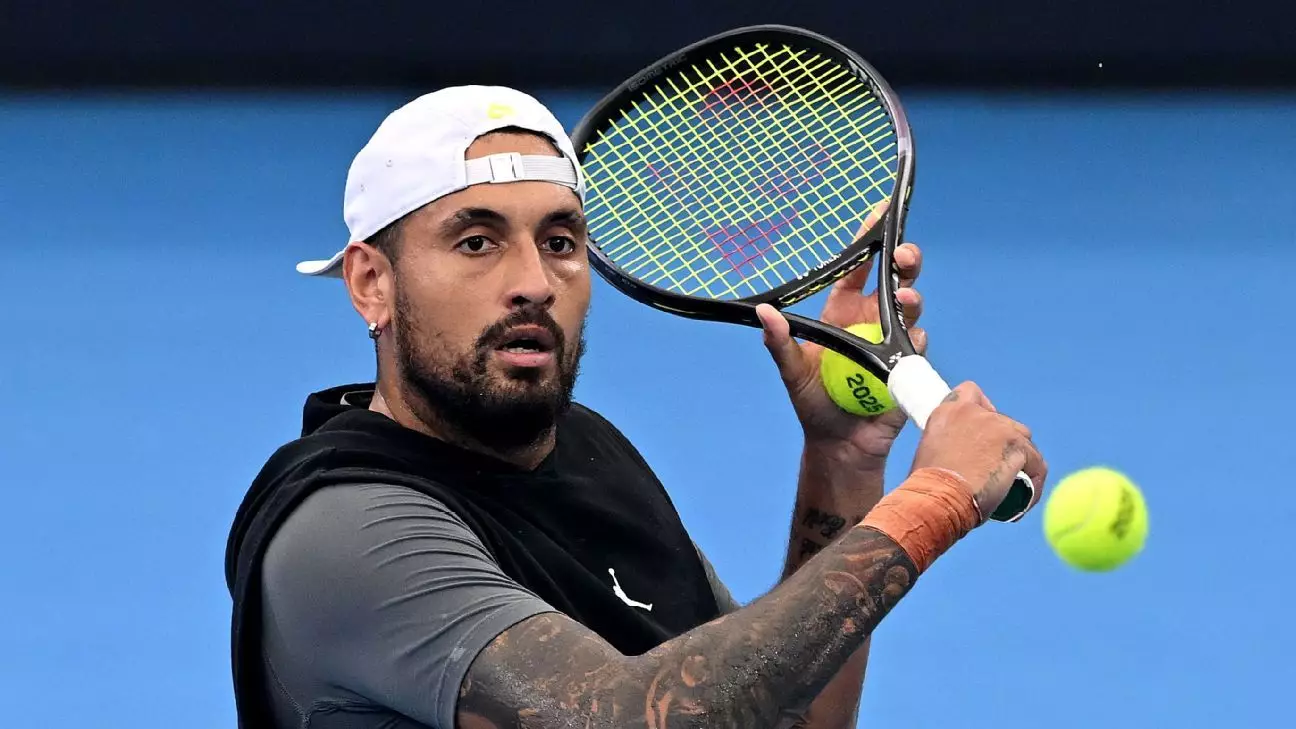Recent allegations involving top tennis players Nick Kyrgios, Jannik Sinner, and Iga Swiatek have sparked a provocative debate over the integrity of the sport. This controversy took center stage when Kyrgios criticized his fellow athletes for their involvement in doping scandals, labeling their actions as “disgusting for our sport.” As the world of professional tennis grapples with these troubling developments, Kyrgios has emerged as a vocal advocate for clean competition, challenging not only the athletes implicated but also the broader culture surrounding integrity in tennis.
Jannik Sinner, currently ranked world No. 1, faced serious allegations after testing positive twice for an anabolic steroid earlier this year. The International Tennis Integrity Agency (ITIA) investigated the matter but concluded that Sinner was not culpable, attributing the contamination to an accidental transfer from his physiotherapist. Similarly, former top player Iga Swiatek accepted a one-month suspension for a positive test involving trimetazidine, a banned substance often associated with performance enhancement. While both athletes escaped harsher penalties, Kyrgios emphasizes that any instance of doping—intentional or accidental—casts a long shadow over the sport’s credibility.
Kyrgios’s comments reflect a deep-seated concern about the impact of these scandals on the image of tennis. He remarked during his press conference at the Brisbane International, “Tennis integrity right now, and everyone knows it, but no one wants to speak about it, it’s awful.” This sense of urgency underscores Kyrgios’s motivation to speak out, particularly given his own struggles with injuries that sidelined him from the tour since June 2023. He asserted, “I would never even in my entire life ever try and dope in this sport,” highlighting his commitment to fair play amidst the pressures of competition.
Kyrgios’ emotional investment in the sport shines through as he recounts the many temptations to resort to performance-enhancing methods, especially when dealing with significant injuries. He implores athletes to uphold the true essence of competition by relying on their talent and effort, stating, “That’s just not who I am. I’m always against that.” His determined stance challenges not only the athletes directly implicated but also a culture that may inadvertently promote shortcuts to success.
One of Kyrgios’s notable criticisms is directed at Sinner’s handling of the contamination incident involving his physiotherapist. He expressed disbelief that Sinner would retain a team member for five months after a significant breach of trust and professional ethics. Kyrgios argues, “I’d be livid. If my physiotherapist contaminated me, I would probably never talk to the guy again.” This point raises critical questions about accountability within athletic teams and the lengths to which individuals will go to protect their reputations at the expense of the sport’s integrity.
Kyrgios’s perspective sheds light on a broader issue: the responsibility that comes with having a professional support team. He points out the high investment athletes make in their teams and the expectation that those teams act with integrity and diligence. By bringing these concerns to the forefront, he urges a reexamination of the ethical landscapes surrounding professional sports, especially tennis, where the stakes are considerably high.
As he concludes his critique, Kyrgios stresses the importance of dialogue surrounding doping violations. He recognizes that many may prefer to “sweep it under the rug” rather than confront uncomfortable truths. In a field where integrity is paramount, silence can be detrimental. The need for athletes, officials, and fans to engage in open conversations about doping is greater than ever. He asserts, “I think there aren’t enough people that are speaking about it,” advocating for a more transparent environment where issues can be addressed rather than ignored.
In the wake of these doping allegations, Kyrgios’s forthrightness serves as a reminder of the importance of integrity and accountability in sports. As tennis navigates these turbulent waters, athletes and stakeholders must unite in the fight for a clean sport. Kyrgios’s willingness to speak out, even at the risk of controversy, sets a powerful precedent for future generations of tennis players. The sport must reaffirm its commitment to fairness—not just for the athletes competing today but for the integrity of tennis as a whole. Ultimately, open and honest dialogue is essential in restoring faith and purity to a sport that is facing existential questions.


Leave a Reply